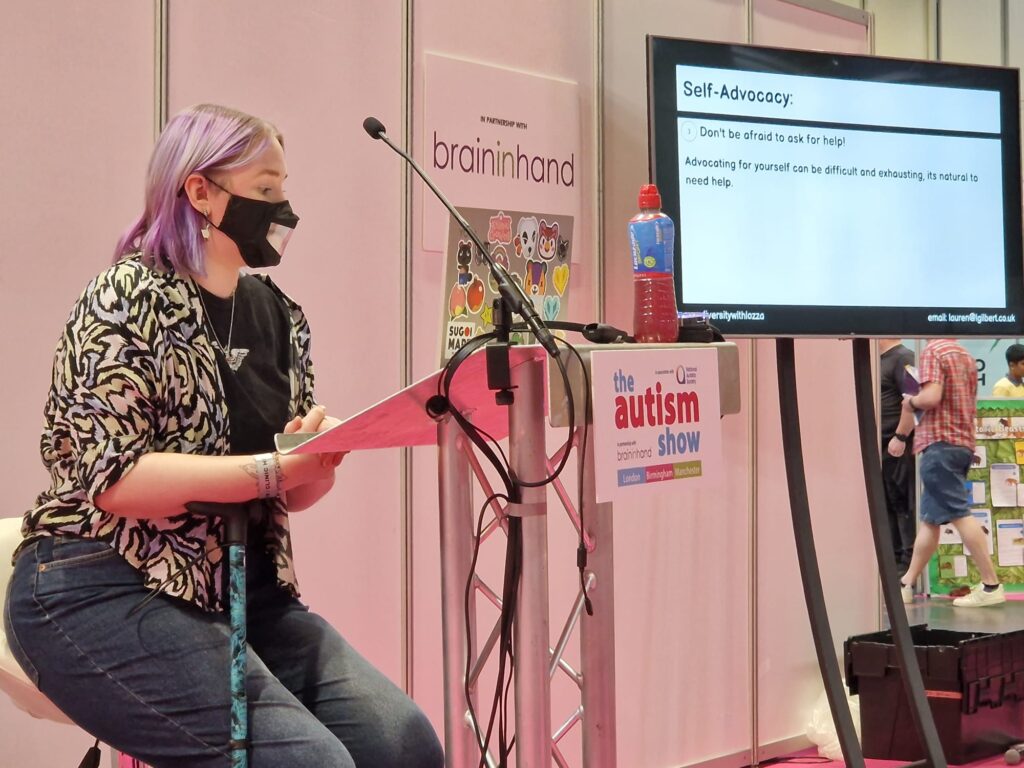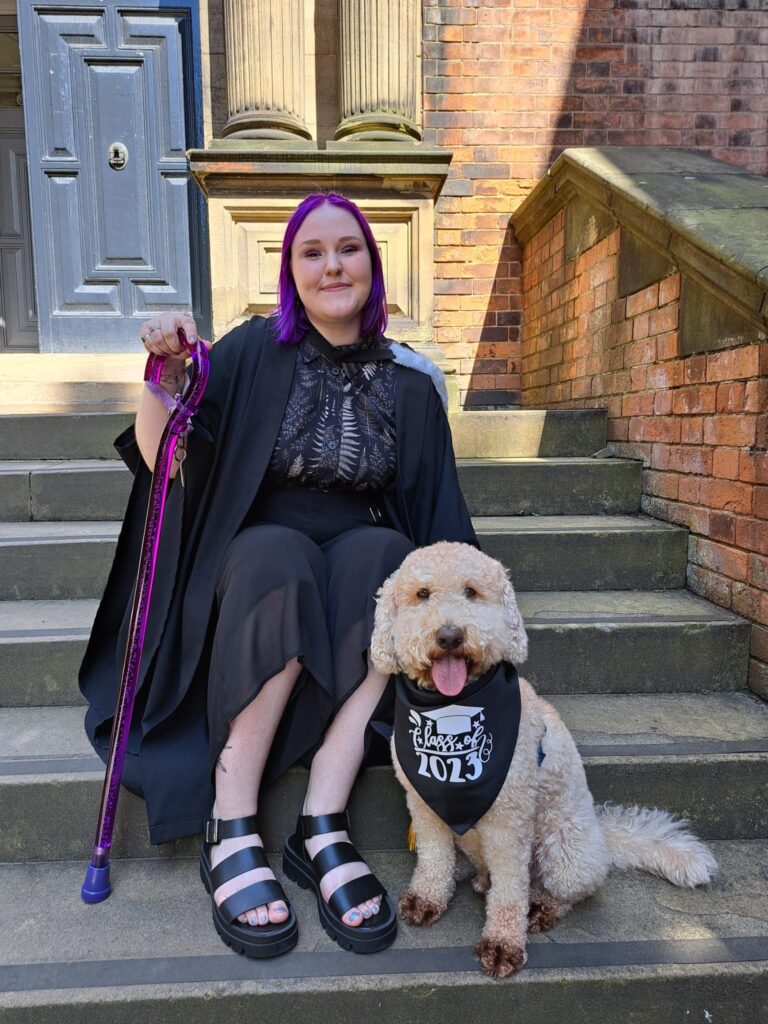How to campaign for disability rights: what I’ve learned on my journey
Lauren Gilbert is a tireless campaigner, both online (follow them here) and off. They won Influencer of the Year at the Sense Awards 2022 for their work using social media to raise awareness and advocate for disability rights. This year, they’re back as a judge for the Sense Awards 2023, including categories like Campaigner of the Year.
In the build-up to the awards ceremony, where we’ll find out which shortlisted campaigners and influencers will take this year’s trophies, Lauren has shared their top tips for campaigning.

For the past two years, I’ve been campaigning for disability rights in various ways.
I’ve fought for the rights of disabled students as Disability Officer at Newcastle University Students’ Union. I’ve advocated for better health outcomes for disabled young people as a member of the NHS Youth Forum. Plus, I’ve been using social media (find me as @LozzaGilbert) to create resources and blog about my experiences.
From spreading awareness online, to delivering talks and panel discussions in person, I’ve learnt a lot about how to effectively campaign for disability rights and what makes a good advocate.
Here are a few top tips I’ve learned along the way.
Take time to process your own experiences before advocating for others
Since the start of the pandemic, we’ve seen an increasing number of people becoming newly disabled with Long Covid and other conditions.
As a newly disabled person, you might be so full of passion and anger that you want to jump into advocacy straight away. But it’s also wise to take your time – acceptance and adjusting to your disability takes time! Sit with your emotions, find your community and learn all about the history of disability rights.
This is not only about self-care, but also about not doing harm. It’s important to learn about the disabled community that has come before you, and the campaign efforts that are already happening.
It’s also about unpacking your internalised ableism before you take on advocacy work.
Don’t underestimate the power of online activism

In-person organising isn’t accessible to everyone, and that’s okay!
Information is more readily available now than it ever has been, and as social media has become more widespread, online activism has too.
Social media can be a very powerful and accessible tool for sharing news updates, spreading awareness, sharing resources and organising in-person action. X (previously Twitter) can be very useful for keeping up to date on current disability news and campaign work.
I can recommend following:
You can also read work by disabled journalists, writers and creators who are so important for telling our stories accurately and sensitively.
Here are some people I recommend:
Listen to and learn from stories other than your own
Lived experience is an incredibly powerful motivator for change. But you can only campaign for disability rights as a whole if you’re willing to listen to and learn from experiences that are different to your own.
It’s important to centre the most marginalised voices in your advocacy: people of colour, LGBTQ+ people, immunocompromised and high-risk folks and people who need more support/have more complex needs.
It is also important to know that ableism is rooted in white supremacy and racism, as is transphobia, homophobia and hatred and discrimination towards other marginalised people.
You simply can’t campaign for disability rights if you are anti-trans, anti-Black or anti- any other marginalised group.
If you’re not disabled, uplift the voices of disabled people
Carers, parents and siblings of disabled people all have important insights and knowledge to bring to the disability rights movement. But the voices and experiences of disabled people should always be prioritised first.
It is so often that conversations about disabled people do not involve us, or decisions are made without consulting us first.
Our voices should be the priority, and non-disabled allies can really help by boosting and supporting our work.
Accept criticism and learn from mistakes
“Activism works best when you can team up with other people. Sometimes you also need to have that support network of people around you who can relate to your experiences and remind you why you do what you do.”
Nobody is right all the time. There’s no such thing as a “perfect” campaigner or advocate.
Sometimes we make mistakes, and sometimes people point out those mistakes. What is important is that we acknowledge that the things we say have real consequences and impact.
It is important that we do our due diligence, and make sure that we don’t spread misinformation. But sometimes we do slip up (within reason).
When we make mistakes, we need to be able to acknowledge it, be thankful for the lesson and make sure it doesn’t happen again.
Build a support network for yourself
I’m not going to lie: advocacy is hard. When there are increasingly negative attitudes about disabled people in the media, it can be difficult to keep going and feel like you’re making a difference.
Activism works best when you can team up with other people. Sometimes you also need to have that support network of people around you who can relate to your experiences and remind you why you do what you do.
Having friends in the community who do similar work has considerably improved my mental health, and also my work.
So make sure you have people around you that can take care of you, while you fight for what you believe in.
The Sense Awards 2023 are just around the corner!
The 20th Sense Awards will take place on 23 November 2023. Find out more about our nominees and get a reminder to watch the ceremony.

